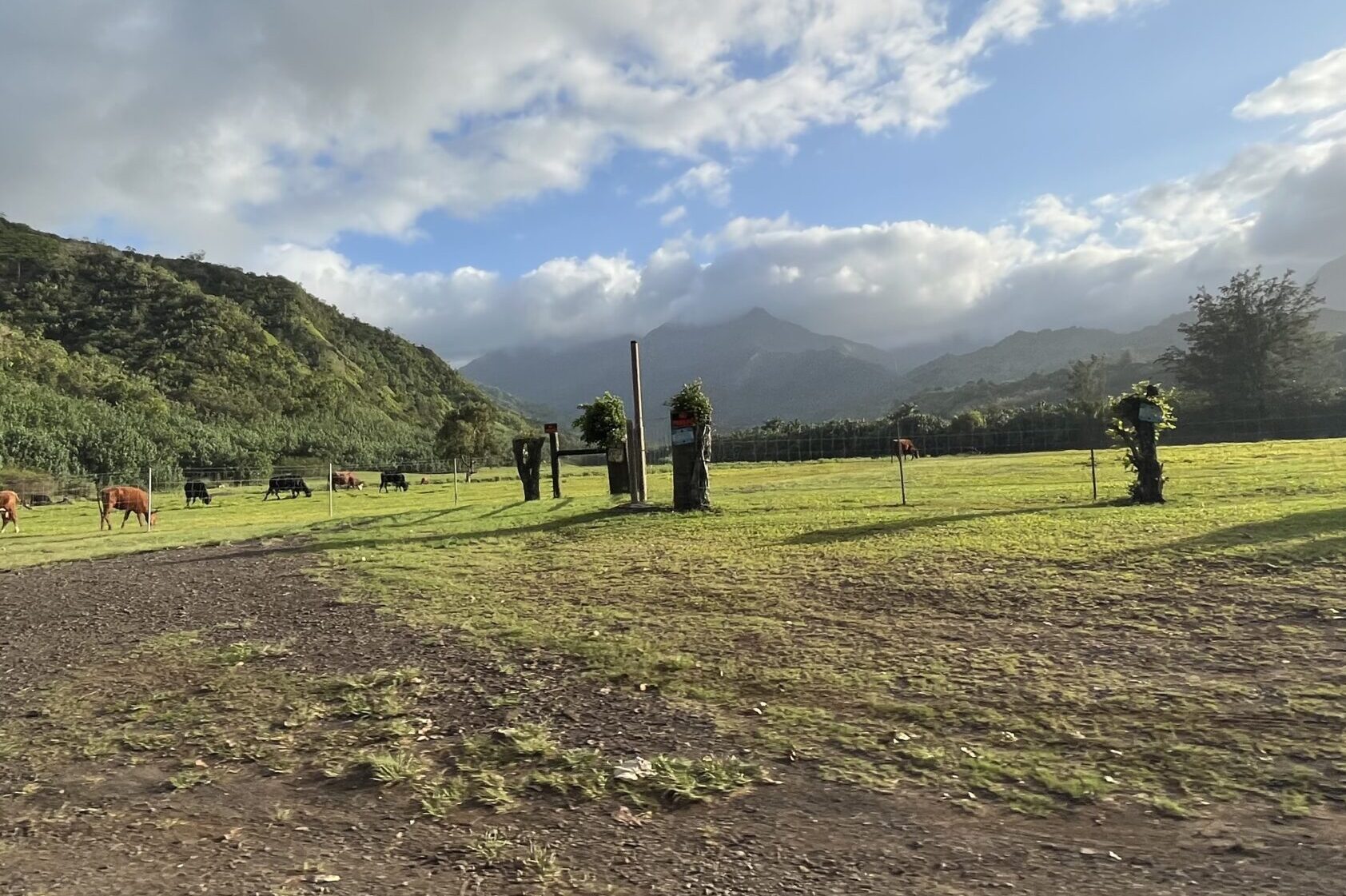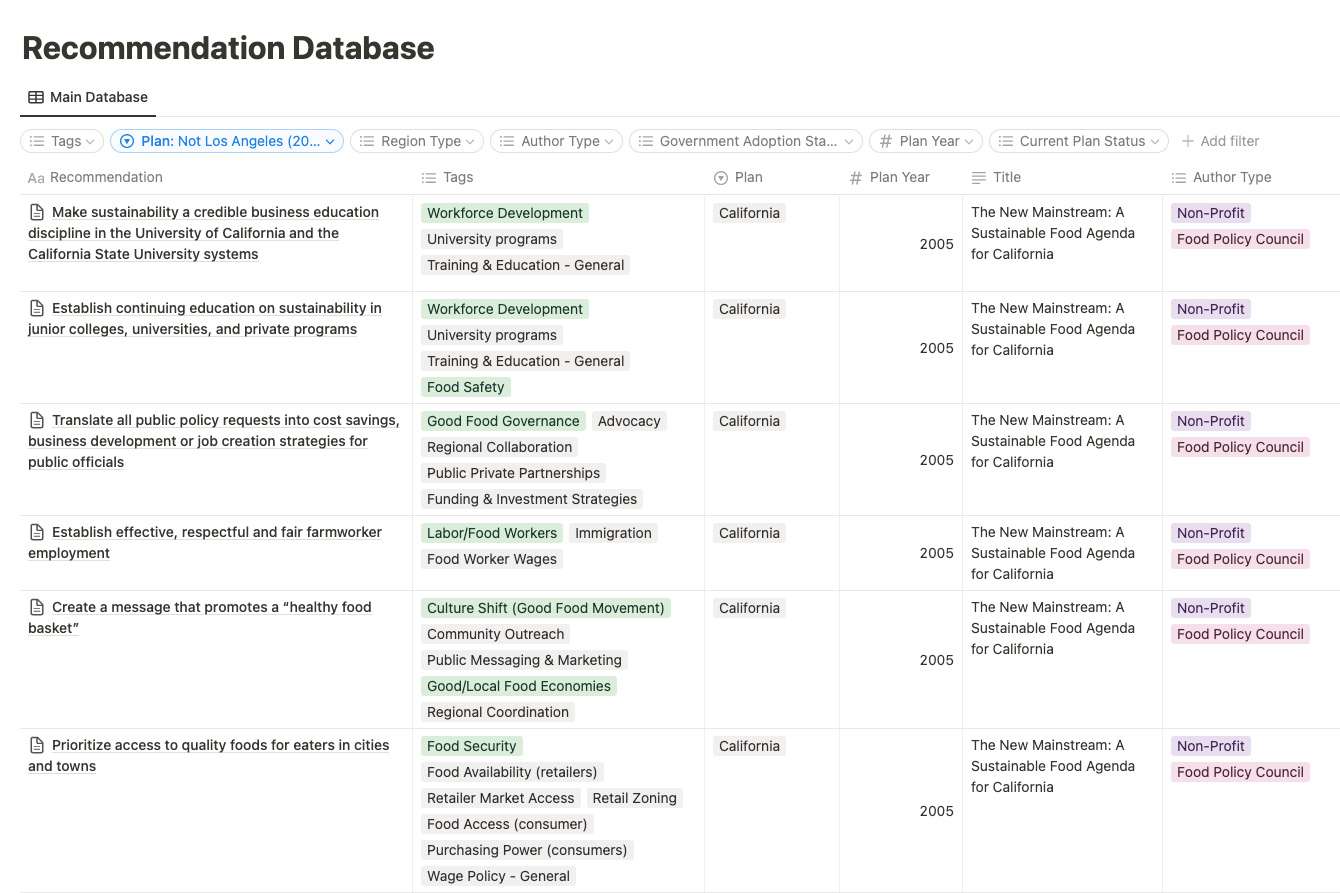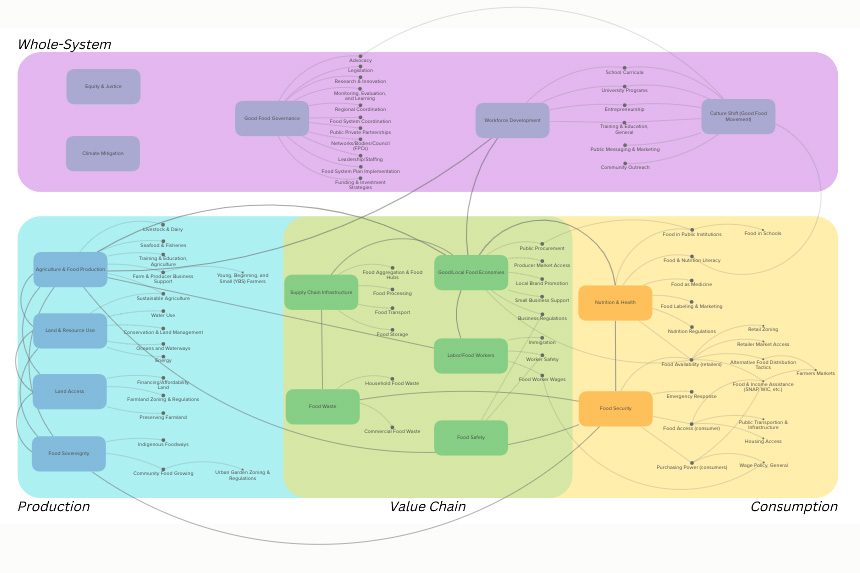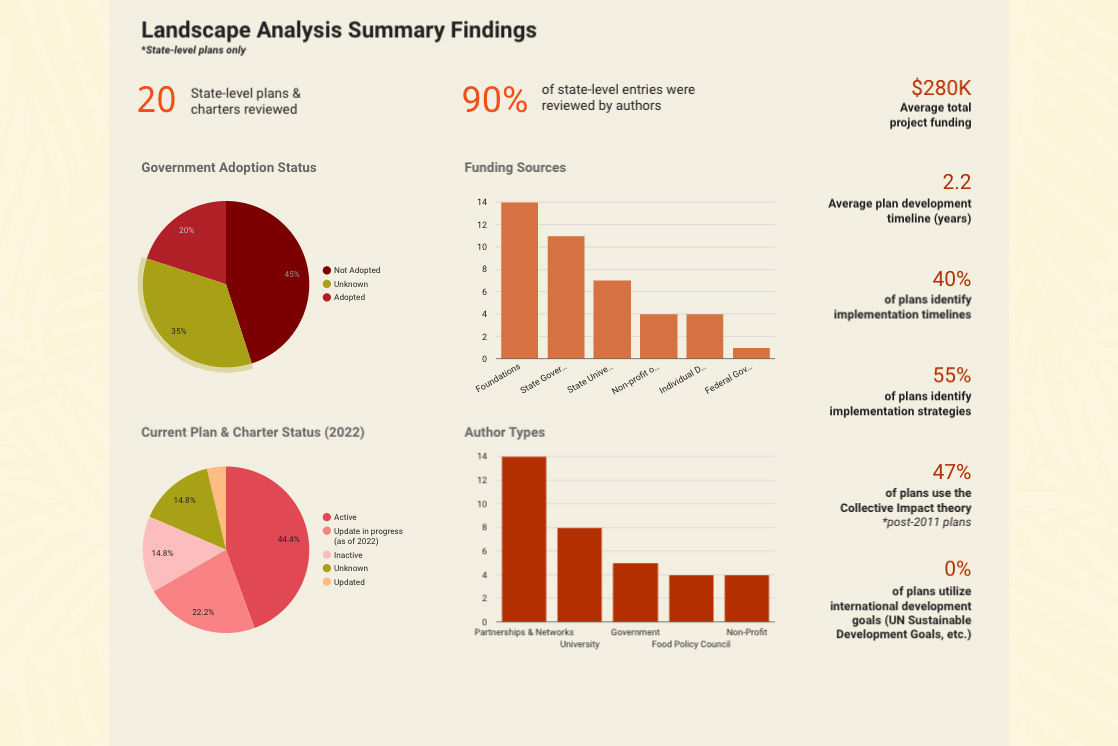From the Field
Planning for Food Systems Resilience in Hawai’i and Beyond
A team of UC Berkeley graduates have launched an interactive toolkit to inform community food systems planning.

Rose Benjamin, MDP ’22 and Ella Geismar, MPP ’22 are recent alumni of UC Berkeley. Rose graduated with a Master of Development Practice, and Ella graduated with a Master of Public Policy from the Goldman School of Public Policy. In March 2022, the Berkeley Food Institute provided seed funding to Rose and Ella to travel to Hawai’i to collaborate with the Transforming Hawai’i’s Food System Together initiative.
Over the last year, we have partnered with Transforming Hawaii’s Food System Together (THFST), a multi-sectoral grassroots initiative working to create equity, sustainability, and resilience within Hawai’i’s food system via the creation of a state-wide food systems plan. This food systems plan would ensure that Hawai’i can develop and implement a community, county, and state level strategy to facilitate local food production and purchasing that includes Indigenous values and farmer perspectives.
We teamed up with another UC Berkeley graduate student, Nani Conklin (MPH ‘23 and chair of the Food Institute Graduate Council), to work with the THFST team to turn our research into a publicly-facing toolkit for planners and food systems advocates nationwide. That toolkit launched January 2023, with the intention of offering insights and resources to a growing national food systems planning community. We’re excited to share this exciting project with the BFI community!
Project Background
Our cross departmental team was first introduced to THFST through Dr. Albie Miles, director of the Sustainable Community Food Systems program at the University of Hawai’i – West Oʻahu and an alum of UC Berkeley’s Department of Environmental Science, Policy, and Management, during his guest lecture in PB HLTH 207, Transforming Food Systems (the core course for the Graduate Certificate in Food Systems). From there, we joined THFST’s efforts as part of our respective master’s theses and graduate level course work.
At the start of our work with Dr. Miles and the THFST team, we were asked to conduct a survey of existing state-level food systems plans to identify the key food system areas addressed by the plans as well as to offer insights into planning processes and contexts. Throughout the Spring 2022 semester, we analyzed over 25 plans across the country and created a synthesized report for the THFST team, much of which has informed Hawai’i’s currently ongoing planning process.
Through this research, we also had the opportunity to meet with dozens of planners and food systems experts. Over the course of these conversations, many planners expressed a similar sentiment: They wished our research had been available to them when they were creating their own communities’ food systems plans. Sharing this feedback with Dr. Miles and the THFST team, a secondary project was born. Funded by the Hawai’i Institute for Sustainable Community Food Systems at the University of Hawai’i – West O’ahu, we refined our research into a dynamic set of online tools that could fill this resource gap within the larger national community of practice.

Transforming Hawaii’s Food System Together is a multi-sectoral grassroots initiative working to create equity, sustainability, and resilience within Hawai’i’s food system. Photo by Ella Geismar
The Toolkit & Landscape Analysis
Since August, we’ve been working collaboratively with web developers to create this set of resources, now available on the THFST website. This analysis explores the “what” and “how” of major food planning trends and offers a multi-tiered set of databases and analytical insights seeking to help inform ongoing food systems planning efforts across the country. Specifically, we offer a set of dynamic tools that allow planners and food advocates to explore the strategies, recommendations, and processes employed by existing state-level plans and charters. Through functional databases and insights, our goal is to illustrate the broader landscape of food system planning and be a helpful resource for those interested in developing new approaches to persistent food system issues.
What’s in the Toolkit?
Our analysis explores the creation and content of 25 city, county, and state level food systems plans and charters. To do so, we’ve created two databases, each with corresponding analysis. See below for a summary of each.
- Plan Scope & Content
- The Searchable Recommendation Database allows you to explore recommendations across 25 plans and charters across over 80 topic areas. You can filter searches by creation processes (such as author or funder type, region type, plan status, etc), or by content (such as Agriculture & Food Production, Climate Mitigation, Equity & Justice, etc.)
- Our Recommendation Analysis offers insights into the scope and content of food system plans’ recommendations and strategies. As the visual shows below, this interactive map provides a thematic analysis of key elements across the 25 plans and a thematic analysis of the content within and across all recommendations.
- Planning & Process
- The Catalog of Food Systems Plans and Charters documents the creation processes of each city, county, and state level plan. This catalog allows you to compare key attributes of the creation process across all plans, while also exploring one plan at a time.
- Our Process Analysis offers insights from these plans and charters into their pre-conditions and creation strategies of effective food planning efforts.
It is our hope that this resource will illustrate the broader landscape of food system planning and be a helpful tool for those interested in developing new approaches to persistent food system issues. Take a moment to click around. Maybe your home state has a plan that you could be a part of!

The Searchable Recommendation Database allows you to explore recommendations across 25 plans and charters across over 80 topic areas.

The Recommendation Analysis offers insights into the scope and content of food system plans’ recommendations and strategies.
